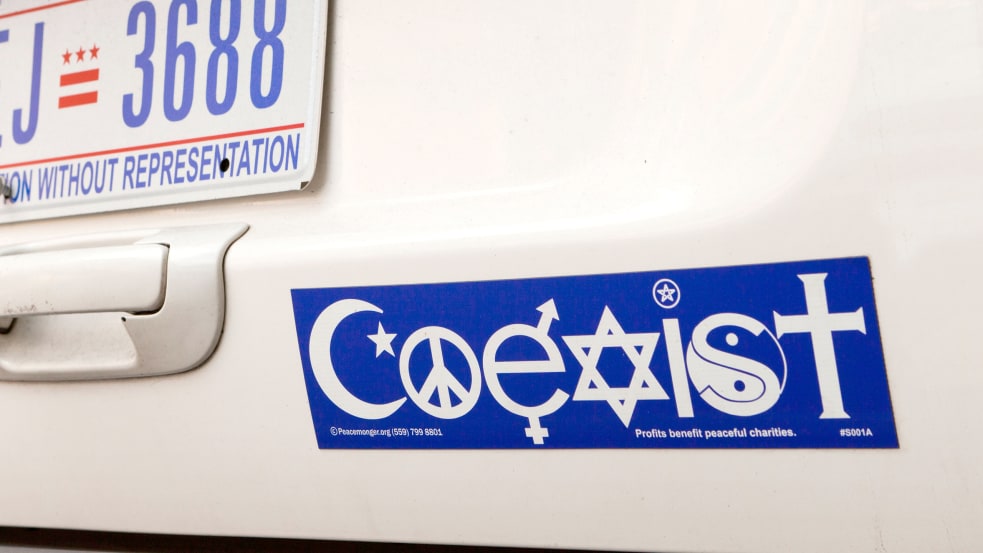
Exploring the interrelation between religion and contemporary society, this MA course is taught by research-active academics who are passionate about their subject area. The course is supported by the Centre for Religion and Society and offers students valuable experience of a vibrant research environment.
Key themes include: action for social justice, consideration of issues of equality and diversity, living sustainably and addressing the ecological crisis.
The course is enhanced by guest lectures from academics, practitioners and activists. MA students benefit from the programme of regular speakers for the Centre for Religion in Society and also the Ebor Lecture series.
The Religion in Society MA is contemporary and interdisciplinary and provides the opportunity for students to research, explore and debate the pressing issues facing communities today.
Here is what one MA students says about the course:
“I have thoroughly enjoyed the Religion in Society MA; it has challenged my perceptions about how people view religion. The course has such a breadth of topics but I was able to focus on specific areas that I am interested in.”
Commentaries by MA students 2021-22
For the MA module ‘the Changing Face of Religion in Society’ students write an academic blog based on a lecture or Ted Talk. Here MA student Bronte Harrington has written a thought-provoking blog based on a Ted Talk by Wale Elegbede.
Tackling Islamophobia in America: Are Local Initiatives the Answer?
In his recent Ted Talk ‘It takes a community to eradicate hate’ (September 2020) strategist and social justice advocate, Wale Elegbede, provided a poignant message of cultivating community solidarity as a means to destroy hate directed towards Muslims and people of faith outside of the Islamic tradition. Having experienced the fear and harmful psychological effects Islamophobia has had on his community, he calls for people to reach out, across race boundaries, to unite in the campaign against hate. Read more.
Masters student, Alexander Dowding has written this incisive independent study reflecting on the works of the late Jonathan Sacks.
The Paradox of Sacks: How Jonathan Sacks balances between a traditional and an open Jewish faith
Throughout Rabbi Jonathan Sacks’ academic work, an apparent contradictory pattern emerges regarding the future role of Judaism. In this he wishes for Judaism to encompass two separate ideals which initially appear to be paradoxical in nature. However, on closer examination I believe that the two can be held together. For he wants the faith to move away from the growing isolation it has experienced in the modern world and impart its vast knowledge onto all others. Therefore, he wishes Judaism to be more open to society to enable the creation of a reciprocal relationship with other faiths and ideas. However, this liberalisation of the faith is counteracted by Sacks’ equal desire to reinforce the practices and beliefs of Judaism. For the danger is that the knowledge held by the faith will be lost if Judaism abandons its traditions by compromising too much to the desires of the modern world. Read more.
Guest Lectures in the academic year 2020-2021
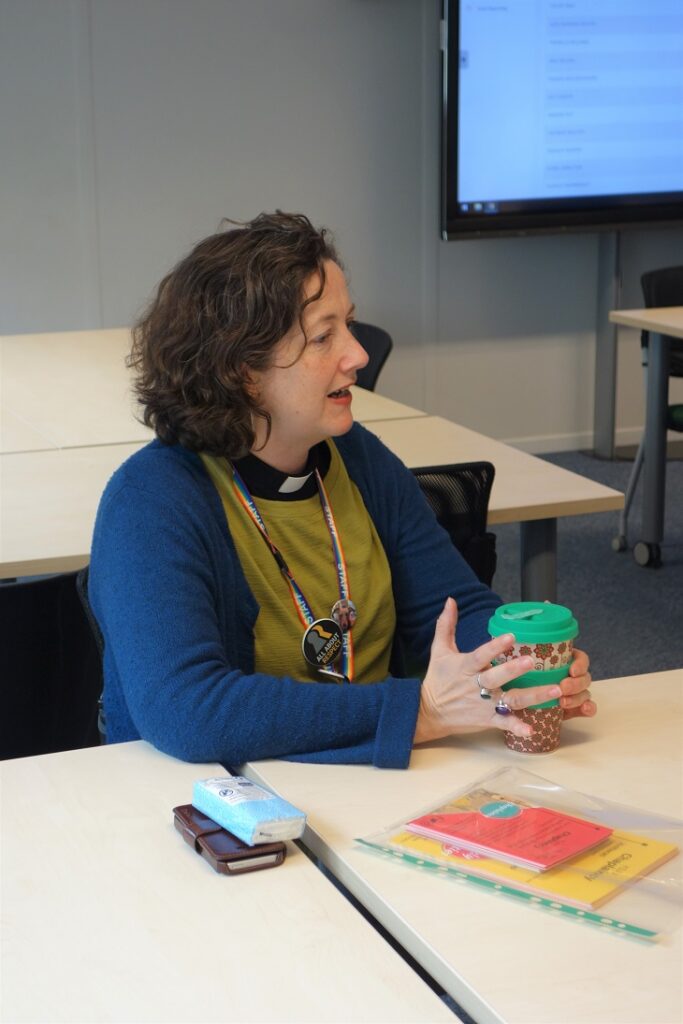
We managed to arrange some socially distanced guest talks in the first term before the more severe lockdown took place. Unsurprisingly, Covid loomed large in the discussions. Professor Andrew Village spoke to the group about the outcome of his research surveys with churchgoers, regarding their opinions on online worship. The role of church buildings was discussed and the surprising finding that it was younger churchgoers who were more likely to miss ‘face to face’ church and find the online services a paler reflection. York Saint John chaplain, the Rev Jane Speck also received a lot of searching questions from our students regarding the role of the clergy under lockdown.
Then it was on to Teams and Zoom. Alongside Dr Sharon Jagger, the Masters class assisted in organising an online symposium on the place of the Goddess in religious/spiritual belief and practice and synergy with contemporary feminism. The symposium brought together academics and practitioners. Masters students also attended guest lectures by Roger Quick, chaplain to the St George’s Crypt centre for the homeless in Leeds and Rev Paul Wordsworth, who is the coordinator for York City of Sanctuary and a longstanding campaigner for the rights of refugees and asylum seekers.
MA students could also listen and participate to a wide range of speaker events organised by the University including: a panel discussion for International Women’s Day on how the pandemic has affected women, and also, the Centre for Religion in Society’s own Dr Esther McIntosh in conversation with fashion icon, and non-binary trailblazer, Jamie Windust for LGBT history month. In April the Archbishop of York gave his powerful inaugural lecture for the Institute for Social Justice at YSJ. The Centre for Religion in Society organised a fascinating panel discussion on addiction, recovery and spirituality, which brought together academics with those working in the field. Finally, the packed season of Zoom activity was rounded with a guest lecture for the Centre from Professor David Voas, who articulated why he still believes in the secularisation thesis.
Is the river of faith flowing?
In this blog, Masters student Edith Wu gives her thoughts on an Ebor Lecture given by Sayeeda Warsi.
On the fourteenth of March 2012, Baroness Sayeeda Warsi made an incredibly tactful speech, “The role of faith in society” (Ebor Lecture Series 6, 2012). She was there to stand up for the Christian faith in Britain and Europe rather than advocate only for her Muslim faith. She was there to oppose militant secularism rather than deny secularism altogether as well as to call for seats for all faiths at the table of public debate, rather than there being privileges solely for the Muslim faith or any other faith group. Read more…
Is There Life on Mars?
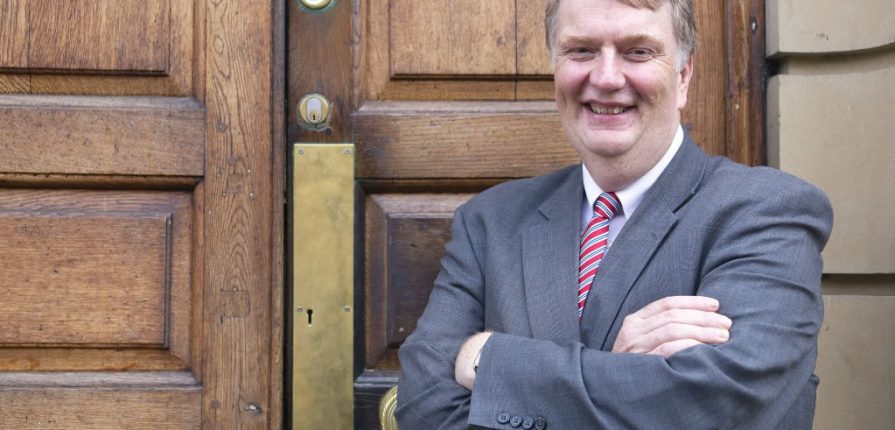
In the academic year 2019-20 Religion in Society MA students attended the Ebor lecture given by Professor David Wilkinson in York Minster. Professor Wilkinson spoke about the possibility of life in other parts of the Universe and the potential implications of this for religious belief.
David Wilkinson is a Methodist Minister, theologian and an astrophysicist. He is the principal of St John’s College at the University of Durham.
Students were invited to meet with Professor Wilkinson at the reception in the Chapter House and were then offered front row seats for the lecture. In the following seminar, students were able to discuss what they had heard to formulate their opinions and write a blog post.
The lecture gave cause for reflection on the complex relationship between scientific, philosophical and religious ideas.
Green Goddess
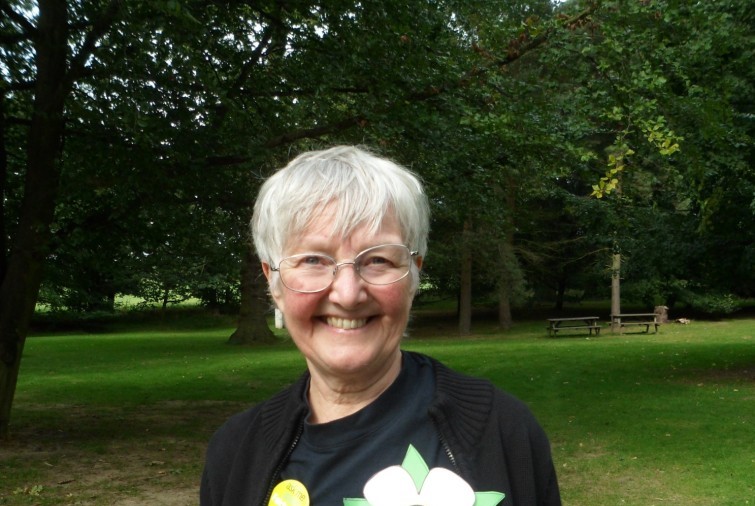
Pagan practitioner, Cynthia Dickinson spoke to the Masters class about the connection between her beliefs and practice and social activism. Cynthia describes herself as a solitary pagan of eclectic practice. She declared that there is no such thing as ‘pagan ethics’ but described her journey of faith. Her social concern is entwined with her beliefs and the practices and rituals in which she partakes. In answer to student questions, Cynthia spoke of the importance of worshipping the Goddess and described some of her daily rituals. She related this to her feminist outlook and the vital importance of addressing the environmental crisis, including her involvement in Extinction Rebellion.
Meditating in Safety
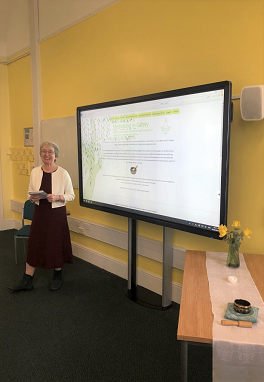
In February 2020 mindfulness practitioner, Jane Reed gave a talk to the Religion in Society MA students about the increasing role of mindfulness practice in western society. Jane shared with us the benefits of mindfulness and meditation but also expressed concerns that meditation should be carried out with appropriate teaching and support. Jane talked us through her website ‘Meditating in Safety’ explaining what motivated her to set up the site. She questioned the growth of mindfulness which takes the form of unaided ‘self-help.’
In the seminar following the lecture, Jane’s thoughts were discussed alongside a reading from the Handbook of Ethical Foundations of Mindfulness. This session inspired one of the students to write a compelling essay on the subject of mindfulness and concerns that its practice in the west is in danger of losing its rooting within Buddhist thought.
A Grave Encounter
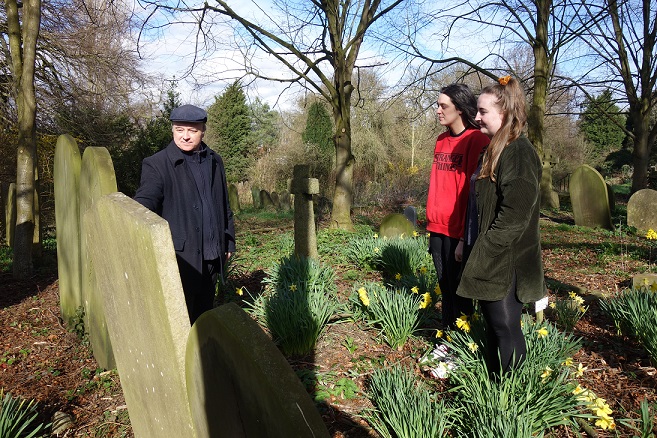
In March 2020 we held a Masters fieldtrip to York Cemetery to look at the changing ways in which the dead are remembered. Students looked out for the changing nature of grave stone inscriptions over time and also at contemporary grave dressing and tributes and messages to the dead. They were able to relate observations to theory on the growth of diverse and personalised spirituality in contemporary western society, which extends to outlooks on death and mourning. Following a tour of the Cemetery the class were able to compare their findings over tea and biscuits in the beautiful Cemetery Chapel.
In the accompanying seminar sessions, the class were able to discuss the visit in relation to the Spiritual Revolution thesis and reading on death and mourning in contemporary Britain. We debated whether Britain was a death-denying society and compared and contrasted outlooks with those in contemporary Mexico, referring to the Day of the Dead ceremonies and the growth of the cult of Santa Muerte.